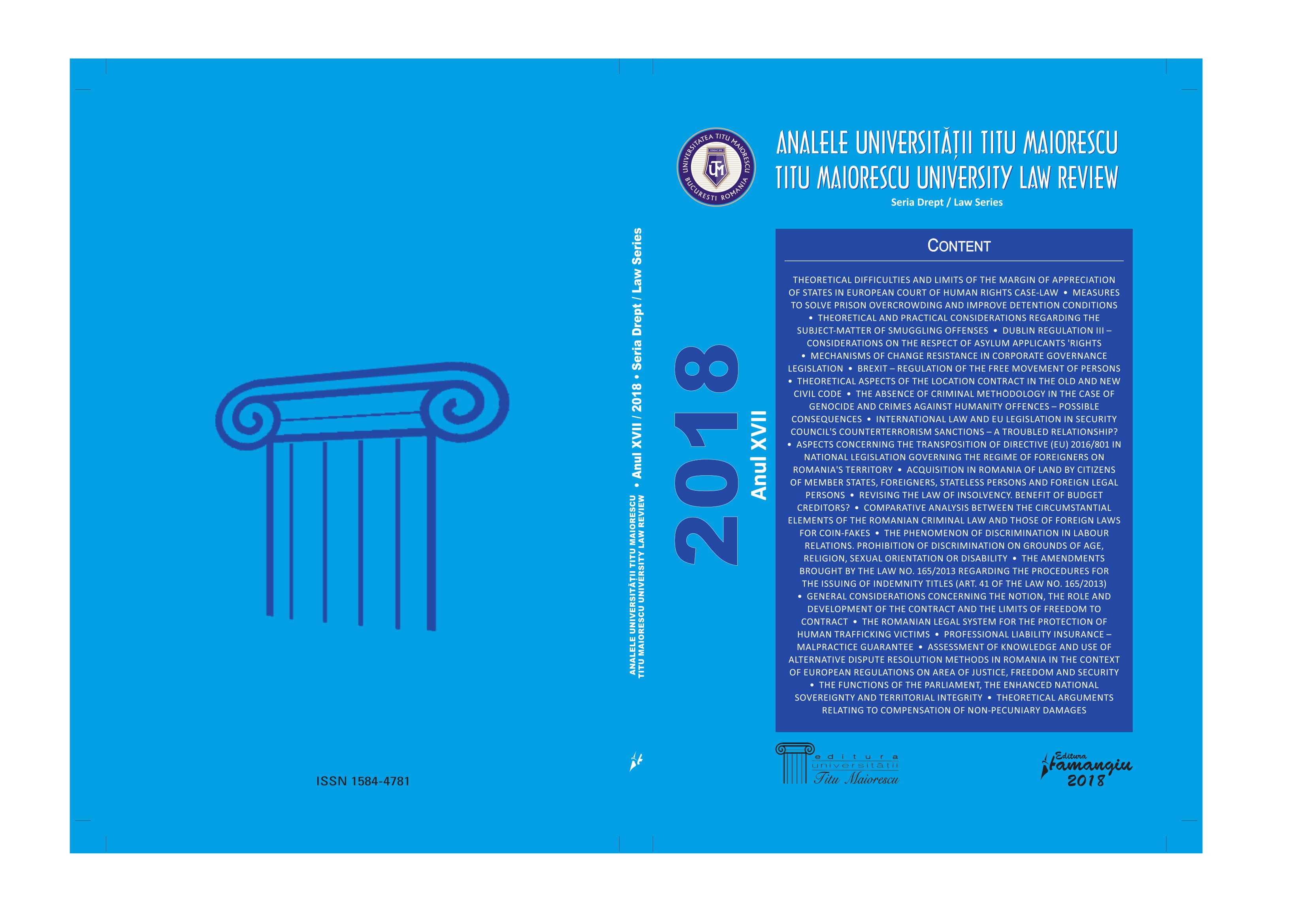MECHANISMS OF CHANGE
RESISTANCE IN CORPORATE
GOVERNANCE LEGISLATION
MECHANISMS OF CHANGE
RESISTANCE IN CORPORATE
GOVERNANCE LEGISLATION
Author(s): Emil Sorin BucurSubject(s): Law, Constitution, Jurisprudence, Civil Law
Published by: Editura Hamangiu S.R.L.
Keywords: Free access to justice; citizenship; the condition of reciprocity; means of proof;
Summary/Abstract: The legislation on corporate governance has been implemented as a result of the acceptance of the obligation of compliance by the Government of Romania and not as an internal emulation, not as a conscious necessity. In this context, Emergency Ordinance 109/2011 on Corporate Governance of Public Enterprises and Subsequent Regulations were a product of tensions between innovative ideas contained in the Corporate Governance Principles stated by the Organization for Economic Cooperation and Development and the old mentality, methods and practices which were used in the management of enterprises in which the state or territorial administrative units had holdings and were in a control position. Starting from the hypothesis of resistance to change, a synthetic examination of the entities and mechanisms was made by which the conception to be removed succeeded in perpetuating its existence.The conclusion drawn from the analysis of the articles in the relevant legislation leads to the need to thoroughly analyse corporate governance legislation and its subsequent regu¬lations with a view to updating, increasing its consistency, simplifying and clarifying it
Journal: Analele Universității Titu Maiorescu
- Issue Year: XVII/2018
- Issue No: XVII
- Page Range: 60-72
- Page Count: 12
- Language: English

